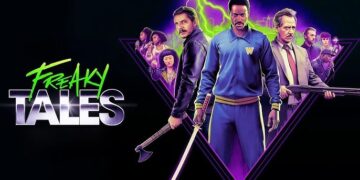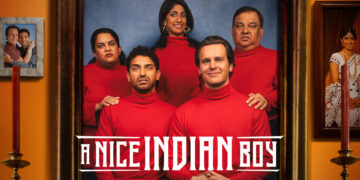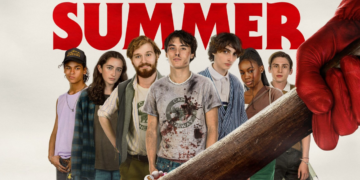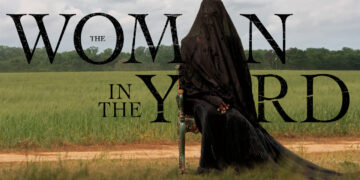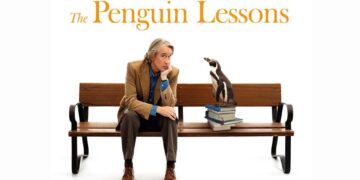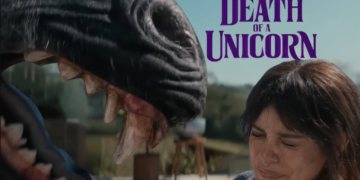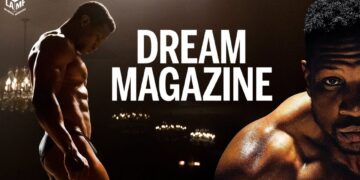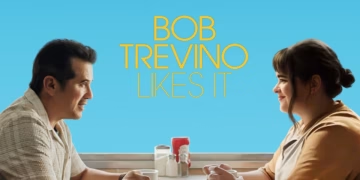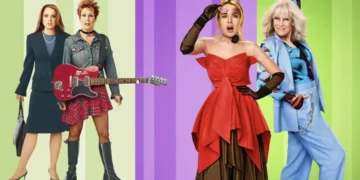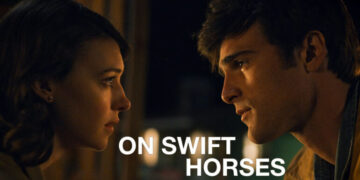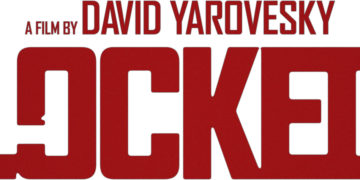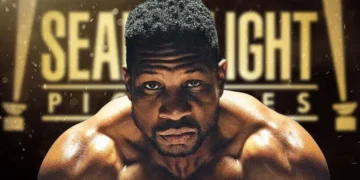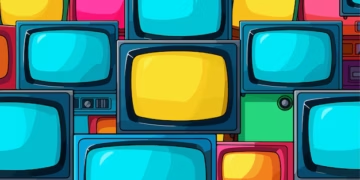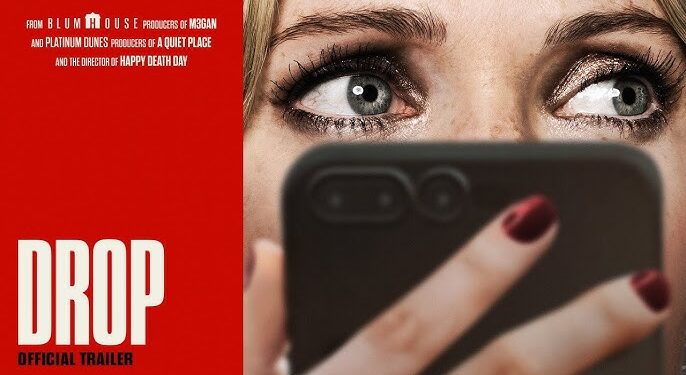Roses are red, violets are blue, a killer first date? It could thrill or undo.
Drop is the latest horror thriller from Blumhouse, directed by Christopher Landon and written by Jillian Jacobs and Chris Roach. The film follows Violet (Meghann Fahy), a widowed single mother and survivor of domestic abuse. Nearly killed by her violent husband Blake (Michael Shea), Violet has rebuilt her life and identity as a therapist for other women who’ve endured similar trauma. Though she’s focused on healing others and raising her son, Toby, Violet’s own romantic life has remained untouched.
Enter Henry (Brandon Sklenar), a charming photographer who does PR for the mayor. After three months of virtual dating, Violet’s sister Jen (Violett Beane) urges her to finally meet him in person. Jen offers reassurances: “They’re not all Blake,” she says. “It’s just a date.” But for Violet, first dates are anything but casual. Even young Toby voices concern: “Does he know about Daddy?” Violet softly responds, “Of course.”

Their date takes place at an upscale, moody restaurant complete with sleek architecture and eerie, tinted lighting that sets the film’s suspenseful tone. But things quickly veer into the bizarre when Violet begins receiving cryptic memes through an app called Digidrop (yes, not Airdrop—Digidrop). Henry explains that messages sent through the app must be coming from someone within 50 feet. Suddenly, everyone in the restaurant becomes a suspect—bartender, pianist, even the quirky waiter.

The messages escalate. A hooded figure has broken into Violet’s home, where Jen and Toby are supposed to be safe. The stalker’s threats become increasingly urgent: if Violet doesn’t follow instructions, including killing her date, her family won’t survive. What follows is a darkly comedic, anxiety-laced journey. For all the thriller tension, Violet is objectively a terrible date; constantly on her phone, emotionally checked out, and frequently leaving the table. At one point, I found myself rooting for Henry to just excuse himself and go home.
Despite the absurdity, Drop cleverly satirizes the hellscape of modern dating, especially for anyone brave (or foolish) enough to use apps like Hinge. “You’re on your phone, that’s a bad date,” Henry says at one point, “but it’s not a crime.”

Beneath the genre thrills, Drop offers a sobering look at trauma’s lingering effects. Violet admits, “I didn’t get out of that abusive relationship. I’m still stuck in that room.” The film visualizes her dissociation with striking imagery: the room darkens, a spotlight isolates her, and we feel her slipping back into her past. It’s a chilling depiction of how trauma can warp even the most mundane moments.
Fahy and Sklenar have a natural spark that makes their performances feel authentic and complimentary. Their chemistry really grounds the film, even when the plot itself starts to wobble. Drop doesn’t hold up to deep scrutiny—it’s not that kind of movie but it makes for a fun, fast-paced 90 minutes. The quirky side characters, like the seasoned bartender and cringy waiter, add flavor, while the saint-level patience of the date and a boomer-style villain communicating via memes give it a strange charm. I didn’t see the twist coming, which added to the fun. It’s the kind of thriller that lets you turn your brain down just enough to enjoy the ride, without needing everything to be airtight.
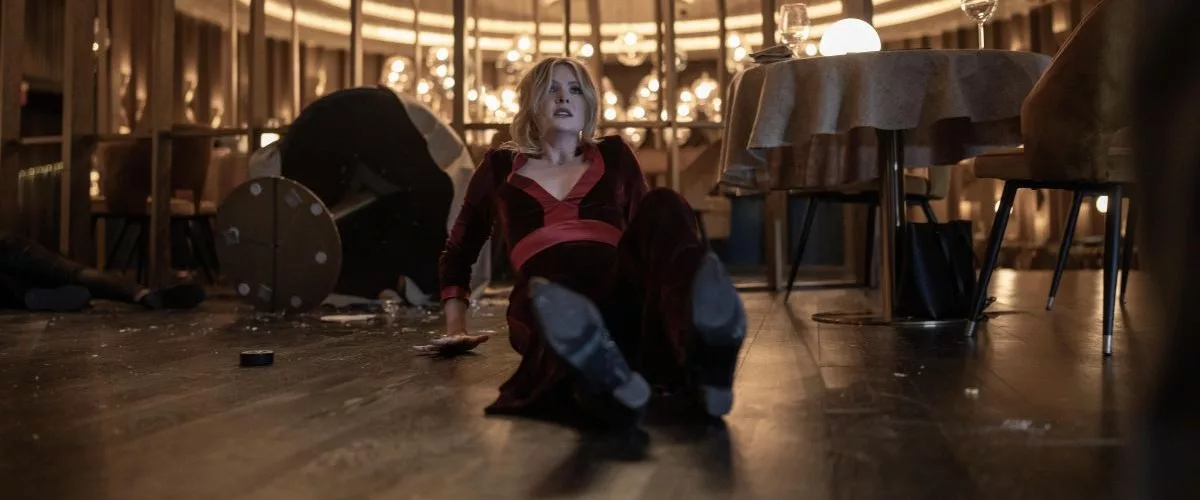
While the final twist is a bit cheesy, it’s also unexpected. Technically, the film is strong, especially for a single-location thriller; with beautiful lighting, inventive camerawork, and an atmosphere soaked in dread. Drop captures the suffocating anxiety of surviving abuse while being watched, hunted, and haunted by past and present threats alike.
This bad romance thriller keeps you guessing and leaves you wondering, “Will there be a second date?”



